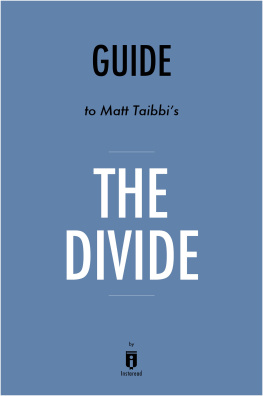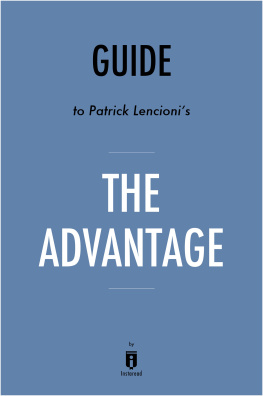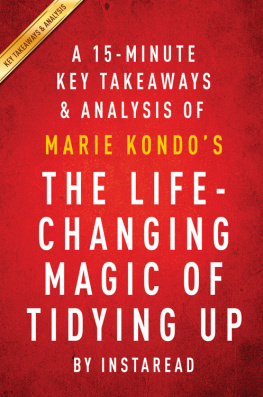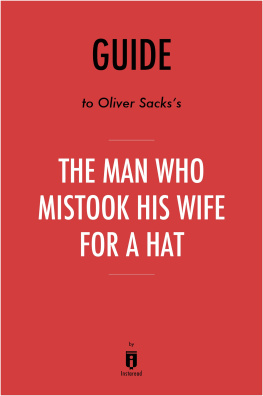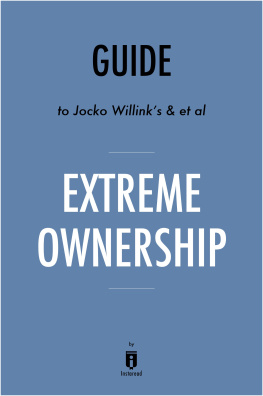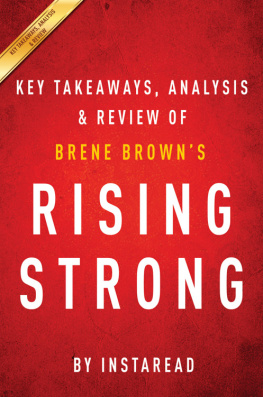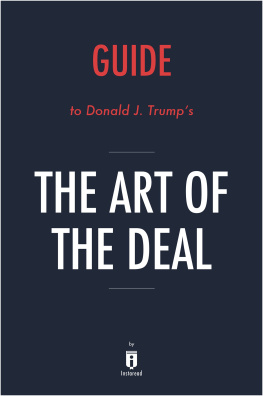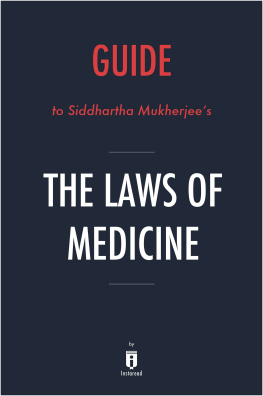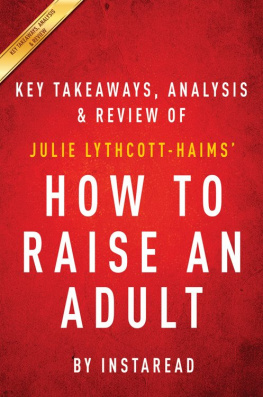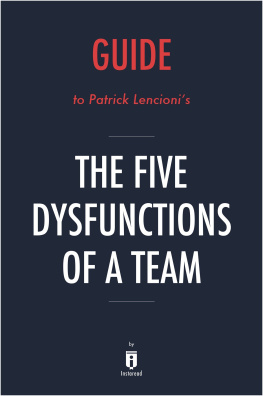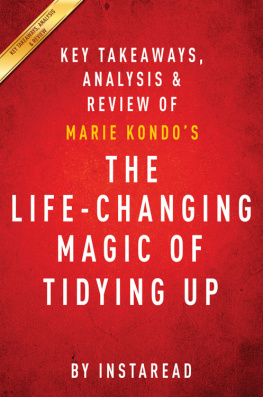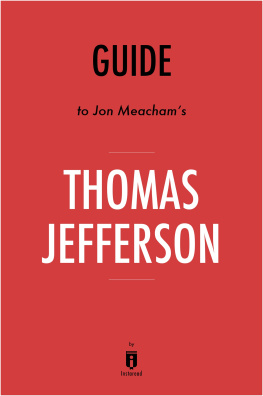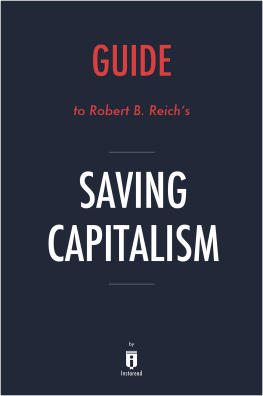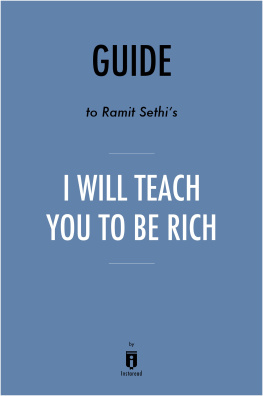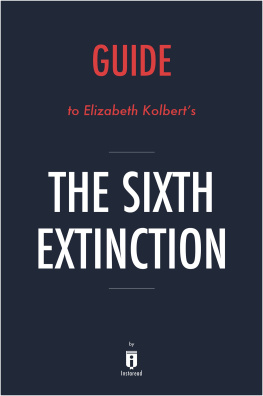Instaread - The Divide: by Matt Taibbi / Key Takeaways, Analysis & Review: American Injustice in the Age of the Wealth Gap
Here you can read online Instaread - The Divide: by Matt Taibbi / Key Takeaways, Analysis & Review: American Injustice in the Age of the Wealth Gap full text of the book (entire story) in english for free. Download pdf and epub, get meaning, cover and reviews about this ebook. year: 2015, publisher: iDreamBooks Inc, genre: Politics. Description of the work, (preface) as well as reviews are available. Best literature library LitArk.com created for fans of good reading and offers a wide selection of genres:
Romance novel
Science fiction
Adventure
Detective
Science
History
Home and family
Prose
Art
Politics
Computer
Non-fiction
Religion
Business
Children
Humor
Choose a favorite category and find really read worthwhile books. Enjoy immersion in the world of imagination, feel the emotions of the characters or learn something new for yourself, make an fascinating discovery.
The Divide: by Matt Taibbi / Key Takeaways, Analysis & Review: American Injustice in the Age of the Wealth Gap: summary, description and annotation
We offer to read an annotation, description, summary or preface (depends on what the author of the book "The Divide: by Matt Taibbi / Key Takeaways, Analysis & Review: American Injustice in the Age of the Wealth Gap" wrote himself). If you haven't found the necessary information about the book — write in the comments, we will try to find it.
Inside this Instaread Key Takeaways, Analysis & Review of The Divide
- Important People
- Key Takeaways
- Analysis of Key Takeaways
The Divide: by Matt Taibbi / Key Takeaways, Analysis & Review: American Injustice in the Age of the Wealth Gap — read online for free the complete book (whole text) full work
Below is the text of the book, divided by pages. System saving the place of the last page read, allows you to conveniently read the book "The Divide: by Matt Taibbi / Key Takeaways, Analysis & Review: American Injustice in the Age of the Wealth Gap" online for free, without having to search again every time where you left off. Put a bookmark, and you can go to the page where you finished reading at any time.
Font size:
Interval:
Bookmark:
Guide to
Matt Taibbis
The Divide
American Injustice in the Age of the Wealth Gap
by
Instaread
Please Note
This is a companion to the original book.
Copyright 2015 by Instaread. All rights reserved worldwide. No part of this publication may be reproduced or transmitted in any form without the prior written consent of the publisher.
Limit of Liability/Disclaimer of Warranty: The publisher and author make no representations or warranties with respect to the accuracy or completeness of these contents and disclaim all warranties such as warranties of fitness for a particular purpose. The author or publisher is not liable for any damages whatsoever. The fact that an individual or organization is referred to in this document as a citation or source of information does not imply that the author or publisher endorses the information that the individual or organization provided. This concise companion is unofficial and is not authorized, approved, licensed, or endorsed by the original books author or publisher.
Table of Contents
The Divide by Matt Taibbi approaches the complicated topic of the unequal treatment of defendants in the United States criminal justice system based on wealth, through individual stories and rarely heard cases revealed in court proceedings.
In the US, bankers and financial officials whose unethical and illegal behavior contributed to the 2008 financial crisis and subsequent economic scandals rarely faced prosecution for their activities. Instead, either the very smallest actors in those activities were prosecuted, or the companies negotiated fines and settlements outside of court. Many of these cases made use of the collateral consequences, a principle based on a memorandum written by Attorney General Eric Handler that states prosecutors should consider whether prosecution would cause too many lost jobs or too much financial harm to the company.
Policing in major US cities generates a high volume of arrests, criminal charges for trivial offenses, and economic incentives not to fight allegations in court. The broken windows theory of crime is a theory that preventing small crime can lead to the prevention of larger crimes. Similarly, stop-and-frisk works on the notion that prosecuting minor offenders will catch a wider variety of major offenses and deter anyone looking to commit more serious crimes. These two strategies make the lives of residents in high-crime areas more difficult because they are often arrested on inflated charges.
For undocumented immigrants, being discovered at all by a justice official, is grounds for deportation. Politicians are so focused on detecting cases of welfare fraud that innocent welfare recipients are often accused of fraud and then punished many times over for the agency's error. Even a minor criminal error for a poor individual results in jail time, while bank officials involved in large-scale fraud are not punished at all for their involvement.
Matt Taibbi is a contributor to Rolling Stone and author of several books about fraud in the financial services industry. He founded the satirical publication The Beast and was a founding contributor at Racket, a satirical digital magazine, before its cancellation.
Eric Holder was appointed as the Attorney General of the United States in 2009 by President Barack Obama. Prior to his appointment, he was Janet Reno's deputy attorney general and worked for international law firm, Covington & Burling LLP, in private practice.
Cyrus Vance, Jr. is the New York County District Attorney who prosecuted employees at a small Chinatown-based bank for falsifying loan documents.
Lanny Breuer was the US Department of Justice Criminal Division's assistant attorney general who led the office in investigations of major investment banks for fraud.
Andrew Brown was a resident in the Bedford-Stuyvesant neighborhood of Brooklyn, New York when he began a criminal career as a youth. When he ended his criminal activities, the police continued to harass him and began trying to hold them accountable for the charges filed against him.
Richard Fuld, Jr. was the last chairman and CEO of Lehman Brothers before its acquisition by Barclays. He engaged in subprime mortgage investment behavior that is widely believed to have contributed to the 2008 financial collapse.
Saul Burian represented unsecured creditors in the bankruptcy of Lehman Brothers. He and his clients were shut out of negotiations during the sale of Lehman Brothers to Barclays.
Spyro Contogouris was hired by hedge fund managers to research, harass, and damage the reputation of Canada's Fairfax Financial Holdings, against which the hedge fund managers were attempting a short trade, a bet on the company's failure.
Prem Watsa is the chairman and CEO of Fairfax Financial Holdings that was targeted as the subject of a short trade by hedge fund managers. In the end, Watsa and Fairfax Financial survived the attack.
- Following the financial crisis of 2008, prosecutors opted for settlements and fines to punish the major banks whose dangerous behavior caused the recession. Bankers did not generally face jail time, as a result of US Attorney General Eric Holder's collateral consequences memorandum.
- Policing in New York City at the time of the financial crisis was characterized by aggressive policing policies, using both the broken windows theory and stop-and-frisk policing, that resulted in a high volume of arrests.
- Once arrested, individuals are often motivated to plead guilty regardless of whether they are factually guilty or innocent. Poor people who are arrested can seldom pay bail and punishment for offenders who do plead guilty can sometimes drag out much longer than necessary.
- Clear cases of unethical investment behavior or circumvention of federal law escape prosecution because lawyers and judges often lack a complete understanding of the schemes, and they have few tools and little motivation to reconsider new findings in court.
- Undocumented immigrants face increasingly punitive measures that can lead to deportation, regardless of whether they have committed crimes, while foreign corporations and their executives are not similarly forced from the US after their unethical investment behavior comes to light.
- Blatant harassment, market manipulation, and fraud among wealthy defendants are crimes rarely punished, despite the volume of evidence, because of legal loopholes, the expectation that anyone involved in trading should be sophisticated enough to handle the risk, and the active involvement of US officials who are motivated to prevent market shocks.
- Welfare applicants are often subjected to an invasion of privacy because the general public expects those in need to sacrifice rights for the sake of fraud prevention. Wealthy fraud defendants receive the benefit of every doubt because they receive no assistance.
- The treatment of the factually guilty in court matters even to individuals who expect they will never be involved in crime because the consistent application of the law is the basis of its validity.
Following the financial crisis of 2008, prosecutors opted for settlements and fines to punish the major banks whose dangerous behavior caused the recession. Bankers did not generally face jail time, as a result of US Attorney General Eric Holder's collateral consequences memorandum.
Analysis
The popular sentiment among politicians states that Wall Street should be held accountable for the consequences of their actions on Main Street, the general term that refers to individual investors and the overall economy, as related to the 2008 financial crisis. It is an easy way to gain support for a presidential campaign, for example, and it is easy for elected officials to say when they do not have any special power to bring anyone to court. Strictly speaking, the only individuals with that kind of power in the United States are prosecutors and grand juries. Elected officials have the ability to affect change if they can appoint the right attorney general on the state or national level. Since President Obama himself has expressed a desire to bring the instigators of the financial crisis to justice, people would expect his attorney general to act according to the same goal.
Next pageFont size:
Interval:
Bookmark:
Similar books «The Divide: by Matt Taibbi / Key Takeaways, Analysis & Review: American Injustice in the Age of the Wealth Gap»
Look at similar books to The Divide: by Matt Taibbi / Key Takeaways, Analysis & Review: American Injustice in the Age of the Wealth Gap. We have selected literature similar in name and meaning in the hope of providing readers with more options to find new, interesting, not yet read works.
Discussion, reviews of the book The Divide: by Matt Taibbi / Key Takeaways, Analysis & Review: American Injustice in the Age of the Wealth Gap and just readers' own opinions. Leave your comments, write what you think about the work, its meaning or the main characters. Specify what exactly you liked and what you didn't like, and why you think so.

